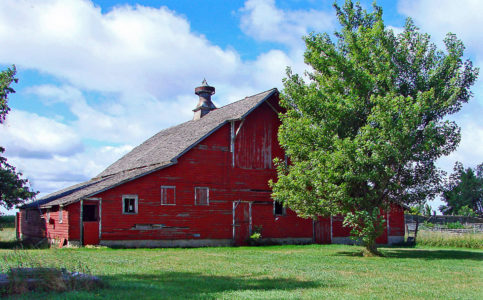In addition to voting in congressional, gubernatorial and state legislative races, community members will have the opportunity to vote in the race for Iowa Secretary of Agriculture, between incumbent Republican Mike Naig and Democrat Tim Gannon. Increasing tensions over trade brought on by President Trump’s tariffs and a statewide conversation about the effect of agriculture on water quality are set to be important issues in the race.
The Secretary of Agriculture’s duties include inspecting livestock and meat production facilities, implementing federal grants, working with industry groups to help Iowa farmers compete and sell their products globally and working with farmers to help them implement soil and water conservation practices, introducing more productive and sustainable methods of farming.
Gannon faced an uncontested Democratic primary. Gannon, who grew up in Mingo, Iowa and served various roles in the USDA from 2009-2017 under Secretary of Agriculture and former Iowa governor Democrat Tom Vilsack, currently farms with his family in Jasper County.
In addition to emphasizing conservation and ensuring access to markets, Gannon said that he would emphasize investing in agricultural research to increase the productivity of Iowa farms.
Gannon said that an important contrast between him and Naig is that he will not be afraid to call out the President for trade policies that have detrimental effects on Iowa farmers.
“I’m not gonna worry about the party in control of the White House and executive branch of government if they’re pursuing policies that are detrimental to Iowa’s farmers and our ag economy. I will side with Iowa’s farmers 100 percent of the time, and I think … our Republican elected leaders — they are not calling the Trump administration out.”
Gannon also said that he supports spending more money on conservation and funding the Natural Resources and Outdoor Recreation Trust Fund. The fund was created in 2010 after Iowa voters approved a constitutional amendment that allows the state to levy a small increase to the sales tax to fund the trust, whose assets cannot be raided for other purposes. However, lawmakers have so far opted not to levy a sales tax increase.
In January of this year Governor Kim Reynolds signed a water quality bill that is estimated to provide $281 million over 12 years of existing public money to water quality improvement initiatives.
Gannon believes the state can do more.
“On conservation I think we need to do a whole lot more than we’re doing, and I think that takes the state filling the Natural Resources and Outdoor [Recreation] Trust Fund so we have that more dynamic funding stream available to implement conservation practices across the state. That would be beneficial to our soil, which would be great for our farmers and keep them productive, but then [it would] also help with the nutrient issues from nitrates and phosphorous downstream,” Gannon said.
Ultimately, Gannon said that ensuring a strong agricultural economy in Iowa is also essential to ensuring that rural Iowa continues to be a place full of economic opportunity.
“I really don’t want to see Iowa become a place where it’s just the cities and urban areas where people think economic opportunity exists … A strong ag economy is fundamental to that … a lot of towns Grinnell-size around the state, you know, if the ag economy is really hurting you notice it right away in businesses on main street not doing as well, and I don’t want to see us struggle through that and suffer through that like we have in the past.”
Naig, who grew up farming with his family in Cylinder, Iowa and has worked in public policy positions for agribusiness groups and served as Deputy Secretary of Agriculture, was appointed to the top position in March of this year when longtime Iowa Agriculture Secretary Bill Northey was tapped for a position in the USDA.
Naig has stressed water and soil conservation and ensuring that Iowa farmers have access to foreign markets in his campaign.
“We’ve spent a lot of efforts looking at demonstration practices,” Naig said, according to reporting by the Des Moines Register. “Now we want to build scale, working with landowners in focused areas.”
Naig faced four other contenders in the Republican primary for Secretary of Agriculture and garnered 34.7 percent of the vote, just shy of the 35 percent threshold required to become the general election candidate. He was officially nominated as the candidate only after winning the support of delegates to the state Republican convention.
Naig’s campaign did not respond to repeated requests for comment from The S&B.





















































